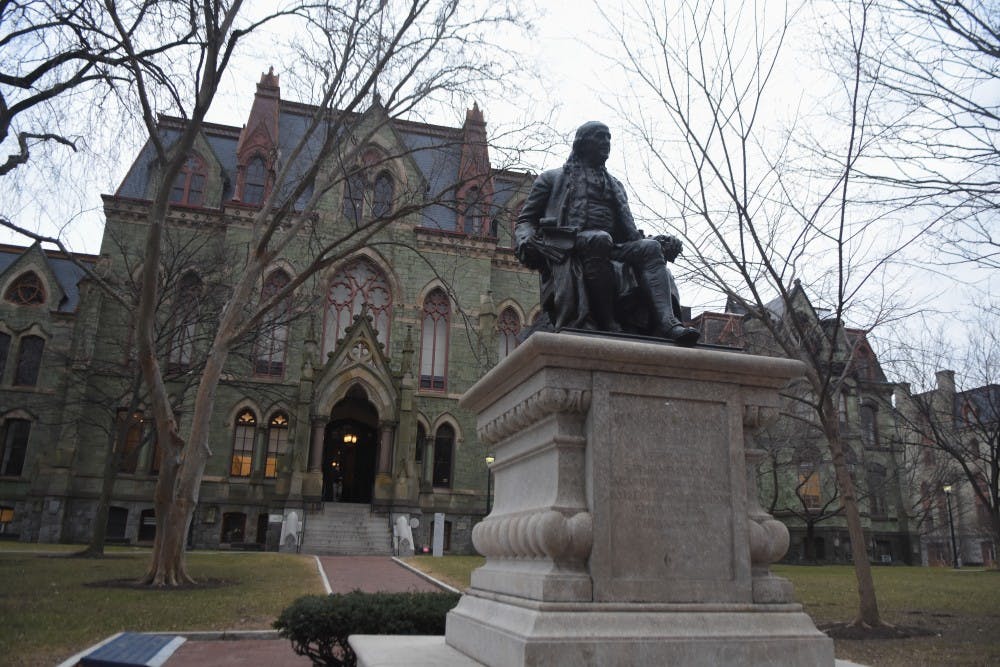
Prospective Penn graduate students are facing visa application issues due to recent government restrictions on Chinese students pursuing certain high-tech fields in the United States.
The State Department announced that beginning on June 11, it plans to shorten the length of validity for visas to certain Chinese citizens. These visas were extended from one to five years for students and from one to ten years for tourists by the Obama administration in 2014.
The Associated Press reported that under the new policy, only one-year visas will be given to Chinese students studying fields such as robotics, aviation, or high-tech manufacturing in the United States. These areas have potential national security and intelligence applications and were highlighted in China’s “Made in China” 2025 economic plan, according to the AP. However, the visa application process itself will not change.
The New York Times reported that “restrictions would probably fall most heavily on graduate students, postdoctoral researchers and employees of technology companies in the United States on temporary visas.”
In the 2017-2018 school year, Penn had 164 undergraduates and 1608 graduate students from China. Many of them, particularly graduate students in STEM programs such as robotics, could potentially be affected by the changes in visa policy.
Shuo Li, who is set to begin a two-year master's program in robotics this fall, is currently going through the administrative checking process for his F1 visa. He said that he will likely receive only a one-year visa, which means that he will have to reapply in the middle of his degree.
“We have to pay more fees for applying for the visa and [are] faced with the risk of being rejected during the graduation,” he said.
Li said that he is “a little concerned” that his visa application will be rejected and that he will not be able to start his degree on time. However, he said he is “not certain what the result will be, and what difference the new restrictions would make to [the] pass rate.”
Chinese students who already have visas do not anticipate they will be affected.
“I attended Rutgers for my undergraduate [degree], during which I obtained a five-year visa that will remain valid till May 2020,” said Yufu Wang, who is set to graduate with a robotics master’s degree in 2020. “So for right now I don’t think the new policy will affect me.”
Similarly, Dongsheng Chen received a five-year visa in the summer of 2017 before beginning his two-year robotics degree. While he does not need to apply for a new visa now, Chen added that he will have to reapply if he decides to pursue his Ph.D. in the U.S.
“I might have to renew my visa, and also I might get checked,” he said.
However, Chen said that he was not very concerned about the changes overall.
“There may be some restrictions, but I think it shouldn’t be a problem,” he added.
On June 7, Penn International Student and Scholar Services (ISSS) posted an announcement about the policy changes on their website, writing that “students and scholars in STEM fields are encouraged to apply for their visas as far in advance as is practicable to allow time for such clearance reviews and to take the new visa limitation into consideration when making their long-term plans and travel plans.”
The announcement also said that current visa holders should not be affected and that ISSS will continue to advocate for students.
“The University of Pennsylvania continues to monitor this situation for any updates and together with our peer institutions will advocate to the US Government about the importance and value of our international students and scholars,” the statement said.
It remains unclear whether ISSS plans to take any more concrete steps to help students with the visa process. Director of Immigration and Integration Services Rodolfo R. Altamirano did not respond to a request for comment.
According to the ISSS statement, students with queries over the new visa limits should contact isss@pobox.upenn.edu.
The Daily Pennsylvanian is an independent, student-run newspaper. Please consider making a donation to support the coverage that shapes the University. Your generosity ensures a future of strong journalism at Penn.
Donate







